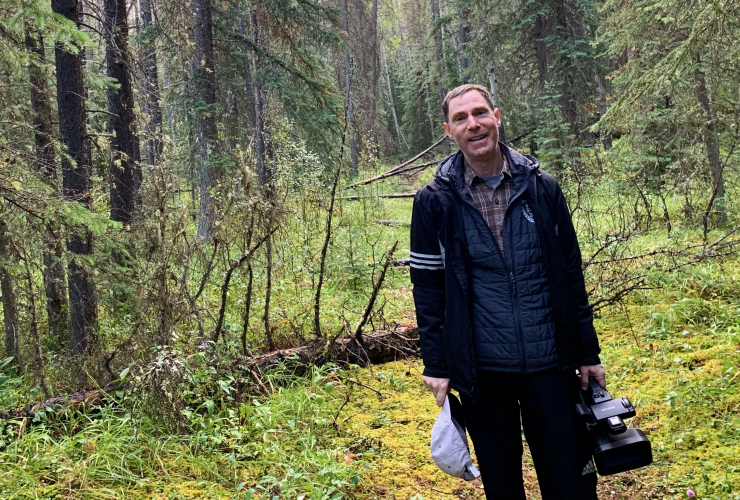Persistent overdependence on fossil fuels — globally and at home — is jeopardizing the health of Canadians and people in all corners of the world, researchers warn.
Across Canada, deadly heat waves and air pollution are claiming lives, growing seasons for key crops are shrinking and people are losing income, a new report by The Lancet reveals.
Heat-related deaths from 2017 to 2021 increased 72 per cent in Canada compared to a four-year period between 2000 and 2004, the new data reveals. Nearly 600 people perished in B.C.’s killer heat wave last summer, according to B.C.’s coroner, and these heat waves are expected to become more frequent in coming decades.
The Lancet Countdown is an annual, international report that uses data to track the health consequences of climate change and assess governments’ endeavours to reach climate targets. This year’s report warns that climate change is accelerating compounding crises: from infectious diseases to food insecurity, energy poverty, extreme weather and deaths.
“By focusing on health, it becomes clear how climate change impacts Canadians,” Dr. Alika Lafontaine, president of the Canadian Medical Association, told Canada’s National Observer.
“Just like health care, it’s sometimes hard to understand unless you're receiving care, or you work within the system … climate change is the same way where, unless you're feeling the acute effects of climate crises, it's sometimes difficult to plug in as a Canadian: ‘How does this affect me?’”
Beyond the significant loss of life, the report highlights how extreme heat events cost Canadians nearly 43 million potential labour hours in 2021. The resulting lost income was equivalent to about $916 million, or 0.05 per cent of Canada’s GDP.
The Canada-specific data shows 1,100 Canadians died due to breathing pollution from fossil fuel combustion in 2021. As it stands, nearly half of Canada’s domestic energy comes from fossil fuels, and despite their climate pledges, the 15 largest oil and gas companies in the world are set to exceed their share of greenhouse gas emissions compatible with a climate-safe world by nearly 40 per cent in 2030 and more than 100 per cent in 2040, according to The Lancet Countdown.
“Aggravating this situation even further, governments continue to incentivize fossil fuel production and consumption,” the authors write.
Doctors’ groups in Canada are on a mission to ban fossil fuel advertising given the health and environmental impacts of planet-warming coal, oil and gas. The Canadian Association of Physicians for the Environment (CAPE) and other groups representing over half a million health workers across the country wrote to the federal government with their concerns earlier this year.
Globally, climate change is resulting in lower crop yields, food insecurity and drought, the data in the report suggests. In Canada, this is manifesting as shrinking growing seasons for maize, soybeans and spring wheat, it says.
Lafontaine says the security of our food supply has ramifications for human health.
“Eventually, everyone is going to experience the same effects… When we truly are in a worldwide crisis, there will be some very hard decisions about who gets what,” said Lafontaine. Canada must develop a plan so that in the midst of a crisis, we will be prepared if other countries can’t provide us with food and other goods in a time of need, much like we saw at the beginning of the pandemic, he said.
Food insecurity can be brought on by many factors. In the aftermath of hurricane Fiona, some community groups on Prince Edward Island expressed concern about how inflation, rent increases and the damage caused by the post-tropical storm are sparking food insecurity among lower-income people.
“The climate crisis is killing us. It is undermining not just the health of our planet, but the health of people everywhere — through toxic air pollution, diminishing food security, higher risks of infectious disease outbreaks, record extreme heat, drought, floods and more,” United Nations Secretary-General António Guterres said in response to the Countdown report.
“Human health, livelihoods, household budgets and national economies are being pummelled, as the fossil fuel addiction spirals out of control,” said Guterres. “The science is clear: massive, common-sense investments in renewable energy and climate resilience will secure a healthier, safer life for people in every country.”
Like Guterres, the report points out a path to a healthy future. Investments in clean energy will improve air quality and save 1.3 million lives annually, accelerating plant-based diets will more than halve greenhouse gas emissions in the agricultural sector and smart urban design can help protect people during heat waves, it says. However, the report warns the world must act fast to prevent the devastating climate and health impacts foretold by the Intergovernmental Panel on Climate Change and other international bodies.
— With files from The Canadian Press and Cloe Logan
Natasha Bulowski / Local Journalism Initiative / Canada’s National Observer
Updates and corrections
| Corrections policyA previous version of this story incorrectly stated that 0.05 per cent of Canada’s GDP was $916 billion in 2021. It should have read $916 million and has been updated accordingly.
"$916 billion, or 0.05 per
"$916 billion, or 0.05 per cent of Canada’s GDP"
That would make Canada’s GDP = $1,832,000 billion = $1,832 trillion = $1.832 quadrillion.
A touch too much.
Canada’s GDP is just shy of $2 trillion USD (2021).
$916 billion represents about half that.
The Observer's figure is out by a factor of about 1000.
The actual figure is closer to 50%, not 0.05%.
$916 billion divided by 43
$916 billion divided by 43 million labour hours = $21,302 an hour.
Who earns over twenty grand an hour? Not me.
That figure is out by a 1000. It should be $916 million.
Which is 0.05% of the GDP. I.e., a tiny fraction.







Comments